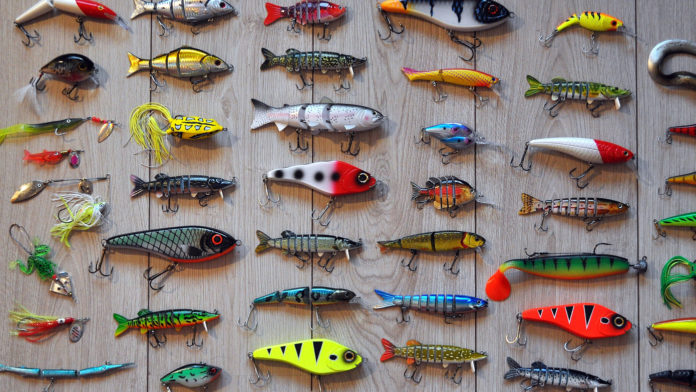Even when there are plenty of fish in the lake, does catching fish make it harder to catch more in the future?
According to biologist Taylor Ward, PhD candidate at Carleton University, the research all points to the answer being yes: when recreational anglers catch fish with a rod and a line, the ones that are most likely to get caught have heritable traits that would make them and their offspring more vulnerable to angling. But they’re the ones being removed from the lake. Conversely, the ones left behind that are harder to catch pass on traits that make the entire population of the lake less catchable.
Most anglers have a limited number of lures in their tackle boxes, and their choices on which to put on their lines influences the types of fish they’ll catch. That’s because fish have different personalities and preferences when it comes to feeding, and that factors into whether they will choose to bite, and how aggressively they might go after the lure.
More aggressive fish are more likely to attack brighter and flashier lures that could scare more timid fish; a more subtle lure, however, might garner a few nibbles from a shy fish. Fish personalities are also related to feeding patterns in general, which affects features like body size and activity. And these appetites also affect composition of the entire lake ecosystem.
The proof that these traits are passed down to the next generations began in 1977 at Ridge Lake, a small lake in Fox Ridge State Park in Illinois. The experiment started by catching and releasing largemouth bass, but not before marking each catch. After three years, the researchers drained the entire lake to collect and sort all the fish in the lake by the number of times they were caught.
The next phase of the experiment took fish that were highly vulnerable to angling (caught four times or more) and put them in their own lake. Fish that had never been caught were placed in a separate lake.
Three generations later, each lake maintained and even heightened their respective catchability traits, demonstrating that vulnerability to angling is a heritable trait. The study also suggests that angling has the potential to actively change the gene pool of a population.
But it doesn’t take decades or even years to see the effects of angling on catchability. Researchers from the University of Calgary and the University of British Columbia focussed their efforts on a catch-and-release experiment on rainbow trout in the small lakes of British Columbia.
Within seven days, they saw a decrease in catch rates, even though the total number of fish did not change. On reviewing catch history, the researchers concluded that there was a group of highly catchable fish that were quickly caught, but that these fish then learned to avoid hooks.
It makes sense that being caught and pulled out of the water is a stressful event for fish, even if they are released to live another day. Their stress hormones can stay elevated for hours or days. In the short term, they can become more selective about what they try to eat while they recover, and in the long term they can learn to avoid the lures that drew them in previously.
So what can an angler do to maintain better odds on tomorrow’s catch? Ward recommends promoting diversity by diversifying your own fishing strategies: switch up the lures you use, and try fishing in new locations for different species. Trying these new angles can help keep a successful line in the water.










































